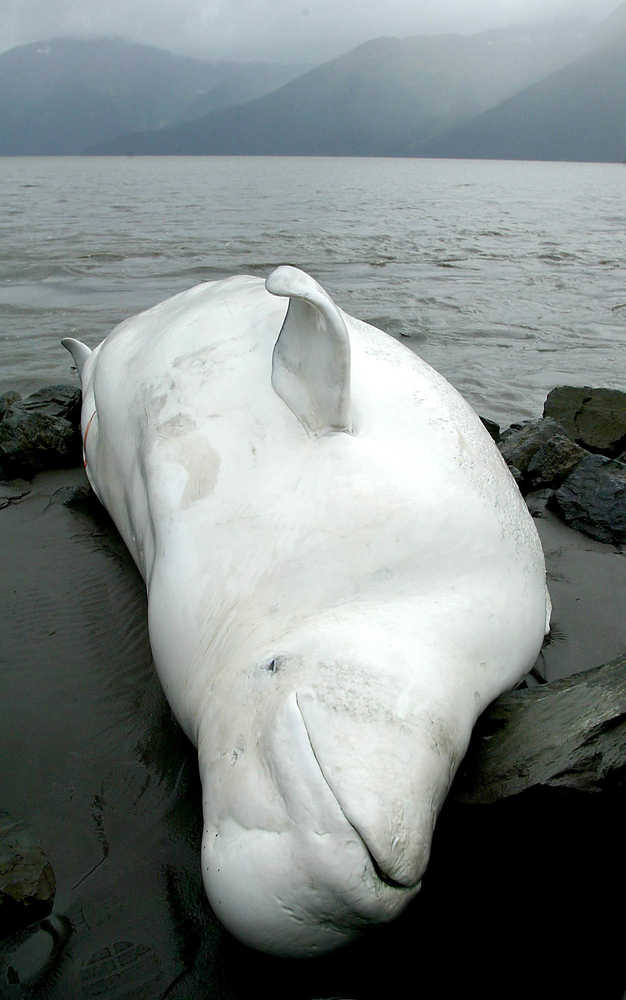ANCHORAGE — A national environmental group on Wednesday asked federal fisheries officials to block an oil company’s plans for offshore hydraulic fracturing underneath Alaska’s Cook Inlet because of the threat to the inlet’s population of endangered beluga whales.
The Center for Biological Diversity in a letter to the National Marine Fisheries Service said fracking increases risks of spills, earthquakes and toxic pollutants to belugas, which were declared endangered in 2008.
“Offshore fracking poses a grave and imminent threat to critically endangered Cook Inlet beluga whales,” said center attorney Kristen Monsell.
The chief executive officer of the company, BlueCrest Energy, said he doesn’t even consider the plans to be offshore drilling.
Fort Worth, Texas-based BlueCrest’s well will be on shore, said CEO Benjamin Johnson. The company will drill horizontally up to four miles to reach deep oil deposits and create fractures of about 200 feet, said CEO Benjamin Johnson.
“We are not in a beluga-critical habitat, by the way, but nevertheless, there would be absolutely no impact to any marine animals by us fracking — putting a fracture in the ground that’s a couple of hundred feet thick — over a mile and a half below the surface of the sea floor,” he said.
National Marine Fisheries Service spokeswoman Julie Speegle said the letter was just received and has not been reviewed.
Monsell called for the federal agency to block drilling plans until it had considered the effects of hydraulic fracturing.
A ruling from a federal judge late Tuesday in Wyoming that federal regulators lack authority to set rules for hydraulic fracturing, also known as fracking, would not affect NMFS authority to protect whales, Monsell said.
“The agency has broad, independent authority to take actions to protect endangered species from harm, and NMFS should exercise that authority,” she said.
Hydraulic fracturing is the extraction of oil and gas from rock through injection of high-pressure mixtures of water, sand and chemicals.
Cook Inlet stretches 180 miles from Anchorage to the Gulf of Alaska and is home to one of five beluga populations in U.S. waters. Beluga whales, which turn white as adults, feed on salmon, smaller fish, crab, shrimp, squid and clams.
The Cook Inlet beluga population dwindled steadily through the 1980s and early ‘90s. The decline accelerated between 1994 and 1998 when Alaska Natives harvested nearly half the remaining 650 whales in only four years.
NMFS officials last year said population estimates have ranged from 278 to 375 animals in the last decade. The overall trend showed the beluga population was not recovering and in decline at an annual average rate of 0.4 percent.

